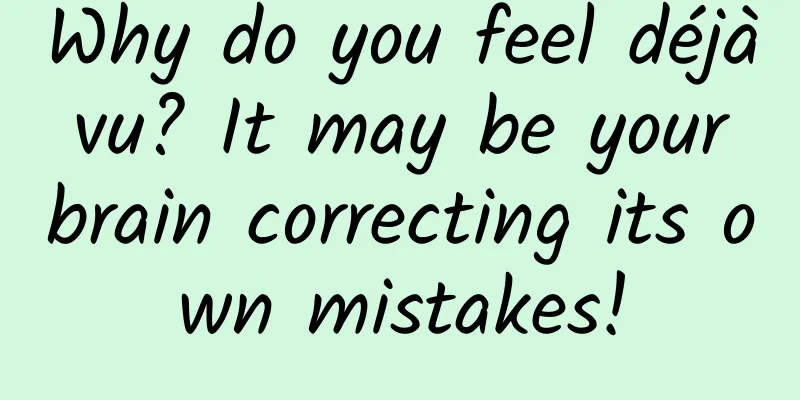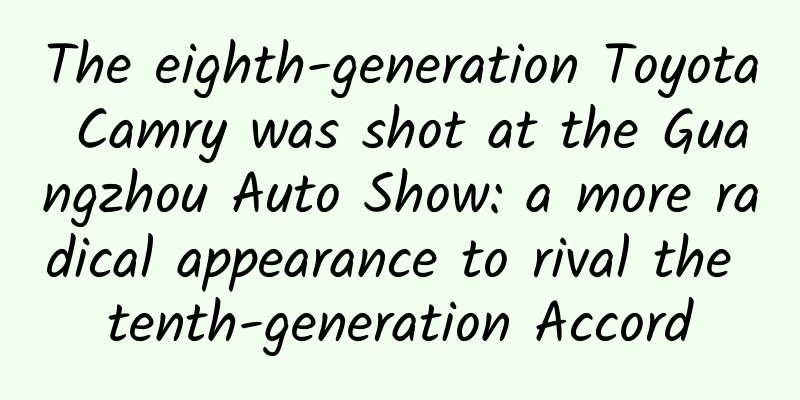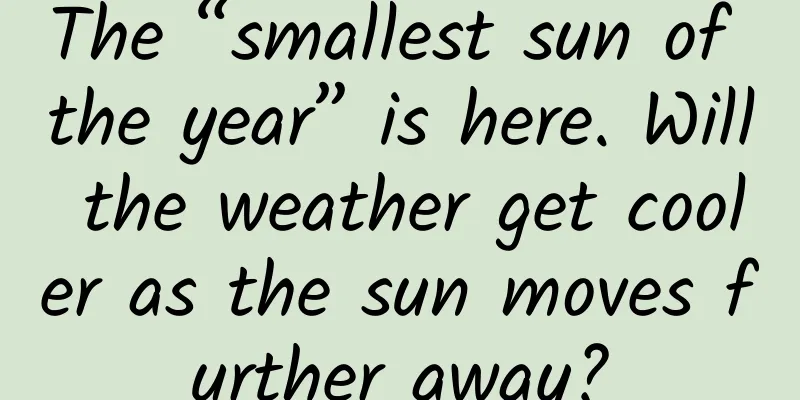Why do you feel déjà vu? It may be your brain correcting its own mistakes!

|
Produced by: Science Popularization China Author: Denovo Team Producer: China Science Expo Have you ever had this wonderful feeling of "déjà vu"? When you travel to a strange place, you feel like you are revisiting an old place; when you meet someone, you feel like Jia Baoyu, "I have seen this sister before", but you can't remember the specific scene; the scene in the dream is played out in reality... What's going on? The feeling of déjà vu is universal In fact, most people experience this phenomenon of déjà vu at some point in their lives, and it was first documented by the ancient philosopher St. Augustine in North Africa more than 1,600 years ago. In psychology, this feeling of "déjà vu" is called déjà vu (French: Déjà Vu). Research by Marija Bošnjak Pašić, a neurologist at the University Medical Center in Zagreb, Croatia, shows that more than 97% of people have experienced déjà vu, and more than two-thirds of them have a certain regularity. This phenomenon occurs most frequently among young people. Deja vu phenomenon in the movie "The Matrix" (Image source: Movie screenshot) So, how does déjà vu occur? Scientific explanation for déjà vu The phenomenon of déjà vu often occurs naturally, and it is full of difficulties and challenges to artificially reproduce it in the laboratory. In fact, there is currently no clear mechanism to explain the occurrence of the phenomenon of déjà vu, but the academic community has made some explorations. Location and basic structure of the temporal lobe (Image source: Reference [4]) Although the déjà vu phenomenon is also known as the hippocampal effect, given its complexity and uniqueness, after more than 100 years of research, the academic community generally recognizes that the hippocampal effect cannot be related to only a single hippocampal structure in the brain. Akira Robert O'Connor, a cognitive psychologist at the University of St Andrews in Scotland, has recently found that déjà vu may be the brain correcting its own mistakes. The phenomenon of déjà vu occurs when the part of the brain that recognizes familiar situations (the temporal lobe behind the temple) becomes overexcited. Then, another area of the brain (the frontal cortex behind the forehead) matches this familiarity with your past experience. When the frontal cortex finds that there is no match, the decision-making area of the brain will work harder to retrieve the memory. If it can't find it, the brain (probably the amygdala) will produce a feeling of frustration, and then you will realize that "false familiarity" and "brain malfunction" have occurred. Is there something wrong with your brain? Emily Pollack believes that something in the environment triggers long-term memories that have been forgotten, which may be the cause of the déjà vu phenomenon. Recently, Anne Cleary, a cognitive psychologist at Colorado State University in the United States, and her colleagues provided possible evidence for this speculation through experiments. Anne showed the subjects some virtual scenes with slight similarities and found that the subjects felt familiar when watching these vaguely similar scenes, which suggests that these environments may trigger the temporal lobe, and the brain recognizes the similarities between current experiences and past experiences, causing the brain to "malfunction" and produce a sense of familiarity that we cannot determine. However, the specific connection between this sense of familiarity and déjà vu remains to be studied. Researchers have also proved through similar experiments that the phenomenon of déjà vu cannot predict the future. In addition to this explanation, there are dozens of theories that attempt to explain why our brains "malfunction" in this way. Some studies suggest that it's like the circuits that connect long-term and short-term memory in our brains are short-circuited, and new incoming information goes directly to long-term memory instead of staying in the short-term memory bank. Other studies blame it on the nasal cortex (the area of the brain that signals familiarity) being triggered without the support of memory. Two virtual scenes with slight similarities. The bedroom scene on the left and the clothing store on the right have the same spatial configuration, which may make the subjects feel familiar. (Image source: Reference [8]) Young people are more likely to experience déjà vu According to a survey by Psychology Today, the first experience of déjà vu occurs mostly between the ages of 6 and 10, and occurs most frequently between the ages of 15 and 25. The frequency of occurrence gradually decreases with age. Akira Robert O'Connor explained that the young brain is more easily excited and easily stimulated, which may be related to endocrine changes during adolescence. Research by Chris Moulin, a neuroscientist at Grenoble Alpes University in France, has shown that for the elderly, when a "false sense of familiarity" appears, their memory verification system may "go on strike" and find it difficult to match memories, thus causing the brain to treat false memories as reality. However, the elderly can still experience déjà vu, but they no longer dare to be sure that the false experience is false. Many researchers have linked déjà vu to stress or fatigue. In some cases, déjà vu can also be a sign of underlying neurological or psychiatric problems. People with temporal lobe epilepsy, schizophrenia, vascular dementia, and related conditions may experience déjà vu more frequently. In some rare cases, déjà vu can occur repeatedly, creating vivid "memories" that patients often describe as "recollections of a past life." So, should we be worried when we experience déjà vu? In general, there is nothing to worry about when experiencing déjà vu. As mentioned earlier, most people experience this kind of "deja vu" and it is just a matter of memory or perception. In fact, experiencing déjà vu indicates that our brain's fact-checking area is functioning well and is constantly working to prevent us from misremembering events. Searching for the cause of déjà vu using functional magnetic resonance imaging (fMRI) (Image source: Reference [9]) Conclusion Many scientists around the world are continuing to study the phenomenon of déjà vu in the hope of giving us a glimpse into how the memory system works when there is a slight "fault". I believe that with the continued development of neuroscience and medicine, one day we will uncover the mystery of the phenomenon of déjà vu and bring good news to patients with related diseases. References: [1]Bošnjak Pašić M, Horvat Velić E, Fotak L, et al. Many faces of déjà vu: a narrative review[J]. Psychiatria Danubina, 2018, 30(1): 21-25. [2]O'Connor AR, Moulin CJ A. Déjà vu experiences in healthy subjects are unrelated to laboratory tests of recollection and familiarity for word stimuli[J]. Frontiers in Psychology, 2013, 4: 881. [3]Vlasov PN, Chervyakov AV, Gnezditskii V V. Déjà vu phenomenon-related EEG pattern. Case report[J]. Epilepsy & behavior case reports, 2013, 1: 136-141 [4]Jersakova R, O'Connor AR, Moulin C. What's new in déjà vu?[J]. Culture and Cognition, 2015.. [5]Brown A S. A review of the déjà vu experience[J]. Psychological bulletin, 2003, 129(3): 394. [6]Cleary AM, McNeely-White KL, Huebert AM, et al. Déjà vu and the feeling of prediction: an association with familiarity strength[J]. Memory, 2021, 29(7): 904-920. [7]Stierwalt S. Avez-vous déjà vu un déjà-vu?[J]. Cerveau Psycho, 2020, 124(8): 80-81. [8]Cleary AM, Neisser J, McMahan T, et al. Subjective distinguishability of seizure and non-seizure Déjà Vu: A case report, brief literature review, and research prospects[J]. Epilepsy & Behavior, 2021, 125: 108373. [9]Urquhart JA, Sivakumaran MH, Macfarlane JA, et al. fMRI evidence supporting the role of memory conflict in the déjà vu experience[J]. Memory, 2021, 29(7): 921-932. |
>>: Laser air defense is on the rise. How should "Skynet" develop in the future?
Recommend
Learn movie editing in 7 days on Tik Tok (including a full set of video tutorials), and get a little money-making trick every day!
I don’t need to say much about the Tik Tok movie ...
The logic behind Xu Jiayin's entry into new energy vehicles: In addition to acquiring land, there is also a desire to survive
Jia Yueting or Xu Jiayin’s FF91 car is about to g...
Live broadcast process planning and promotion methods!
Live streaming e-commerce is like a super “human ...
Ear piercing causes intracranial infection. Can a small ear piercing cause such a big harm?
Ear piercing has been a common thing since ancien...
Krill is comparable to the food of life on Earth. Humans catch 300,000 tons of krill every year. Will they eat all the krill?
Krill are like crops in the sea. A lot of them ca...
A good show, why does the space cooperation between Russia, the United States and Europe keep breaking up and getting together?
Some time ago, the United States and Europe cance...
How much do you know about performance optimization?
[[196882]] 1. Introduction Recently, a new versio...
Talk about the hidden rules of App operation
First, let’s deconstruct the position of App Oper...
Wang Tong · Douyin SEO practical class, guide you step by step to do Douyin SEO
Wang Tong · Douyin SEO landing practice class, ha...
Web Dev: 2017 highlights and 2018 predictions
What exciting events in 2017 have the industry le...
The most powerful Zhihu promotion and drainage method in 2019
A few days ago, my famous Zhihu account in the sk...
SOP for live broadcast room with monthly sales of one million
Today I will share with you a very important modu...
Hou Xiaohai, "Snow Beer: How can consumer products achieve brand reshaping? 》
Hou Xiaohai's "Snow Beer: How can consum...
Another breakthrough in AI! The “cough model” was born. A cough can tell you about your health
Written by | Ma Xuewei Preface According to data ...









